Squid Game Reading
longer and/or semi serious posts by me on various topics
The main themes of my original Squid Game content are the anticapitalist messaging and the characters Cho Sang-woo and Seong Gi-hun who meet in the games. Image illustrations captured/edited by me unless otherwise noted.
- The Case for Cho-Sang-woo's Secret Homosexuality
- Why was Cho Sang-woo Such a Dirty Business Boy?
- Gi-hun as Sang-woo's Achilles Heel *cronch*
- Seong Gi-hun: Repeated Failure and Learned Helplessness
Seong Gi-hun: repeated failure, and learned helplessness
On re-watch of episode 5 of Squid Game ("A Fair World"), I was struck by this moment towards the end of the scene where Gi-hun and 001 keep watch. Even as they talk, Gi-hun seems stuck in his flashback/traumatic memory, up until he notices 001 looking sick.
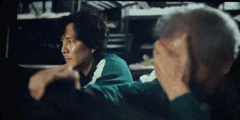
If you watch Gi-hun's face (see crappy gif), there's a clear moment where he snaps out of it and shifts to concern, caretaking. Even with his past trauma, in this totally messed up situation, his instinct is still to help.
Fast forward to the end of the games, after Gi-hun's "victory," and that instinct has been all but stomped out of him. He suffers from what psychology calls "learned helplessness" after repeated failure. He tried to save Sae-byeok and couldn't. He tried to save Sang-woo and couldn't. He was trying to save his mother this whole time, and he couldn't do that either. His daughter still moved away.
So for a year after his win, Gi-hun stops trying to help anyone. Not even Sae-byeok's brother or Sang-woo's mom. It isn't until the rose-seller approaches him--entreating him to buy a flower as a favor to her, "they'll wilt" if she doesn't sell them today--that he's given the chance to help someone else again, even in a simple way. And this sets the scene for the meeting with Il-nam and the significance of that final bet.
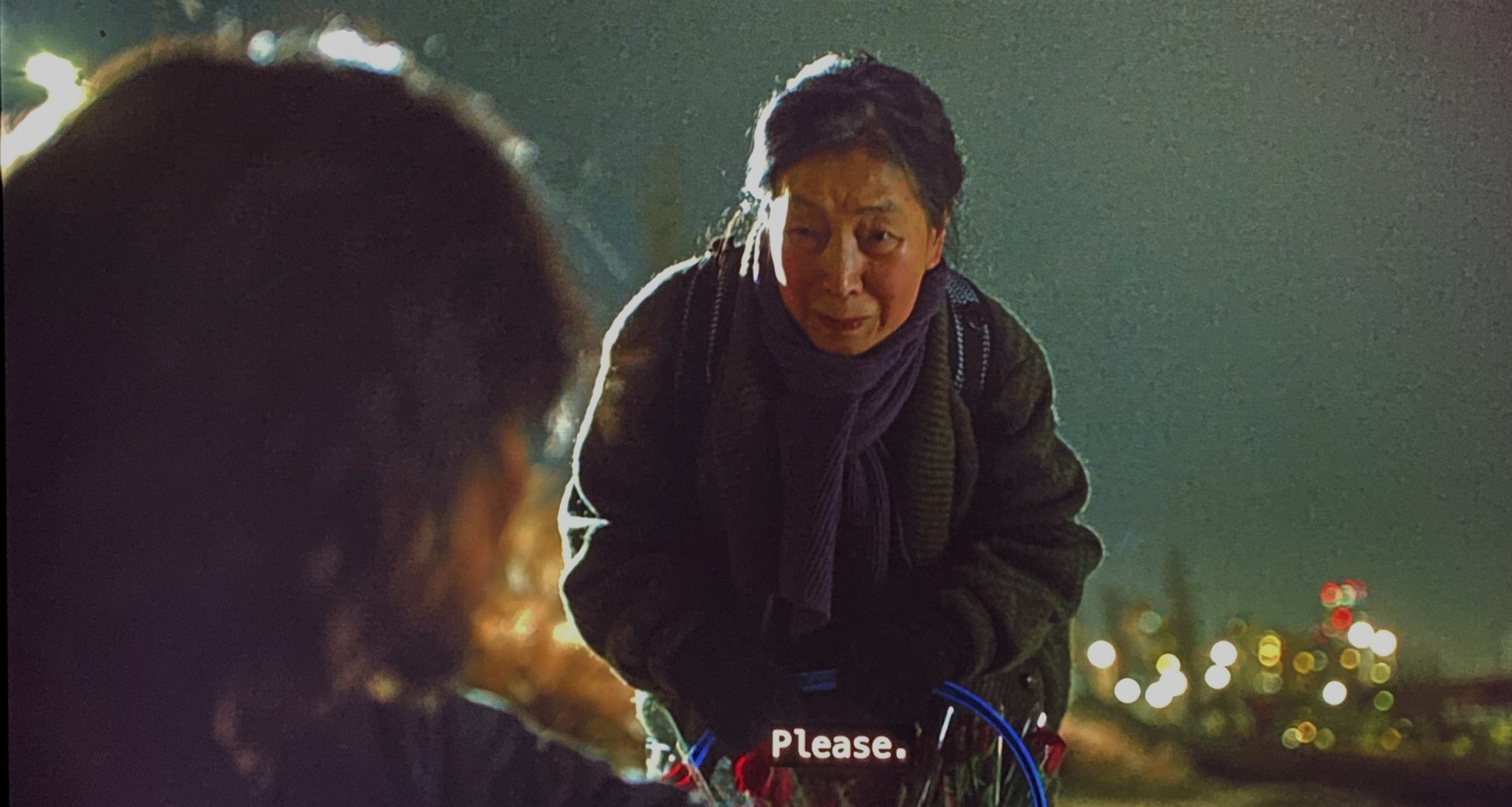
The Case for Cho-Sang-woo's Secret Homosexuality

- He’s 46 and has never been married. His mom believes it’s because of his “high standards” but he’s kept plenty of other secrets from her.
- The last scene with Sang-woo’s mom and Cheol suggests Sang-woo’s mom is probably pretty traditional when it comes to gender. She’s being very sweet to Cheol of course, but her default compliments for him are that his name is “manly” and he looks “like a tough boy.” Hmmm.
- Clearly Sang-woo’s mom thinks the world of him, and he’s been trying so hard to live up to her expectations. He threw himself fully into school and then work(/crimes) instead of enjoying any kind of personal life as far as we know. And it’s obvious why he chose to live like that… but it’s also pretty convenient for someone hiding their sexuality.
- Sang-woo had pretty negative reactions to both Gi-hun asking if he had a girlfriend and Mi-nyeo begging to partner with him in exchange for sexual favors. In conclusion, I don’t think this man has ever been comfortable in his life and we can all agree chronic discomfort is pretty gay.
Why was Cho Sang-woo Such a Dirty Business Boy?
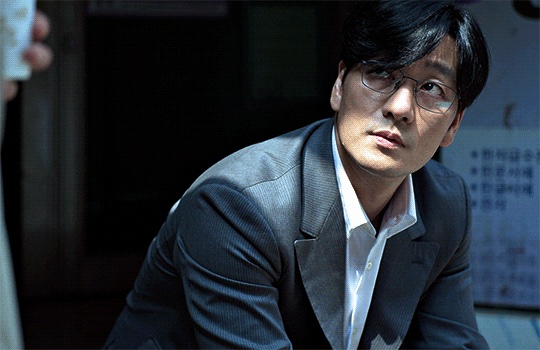
Sang-woo came from a lower-income family and through innate intelligence, hard work, and support from others (that he might not acknowledge), he managed to get into a top school and land a high-paying job.
But then, for some reason, "modest" success wasn't enough and he went on to gamble on risky investments for a chance at $more. He "didn't have money to make money," so he funded these bets by embezzling and putting his mom's house and business on the line. And ended up losing everything.
So why did Sang-woo risk so much for a chance to rocket to the 1% in the first place? With the limited information available, I propose that he was following a familiar path, aka:
The stepping stones of capitalist doom/success for men with chips on their shoulders:
- "Win" moderate success and significantly improve your life
- Still want more due to greed/ego/insecurities stemming from toxic masculinity 📌(put a pin in that)
- Commit crimes (financial, moral etc.)
- Profit???
The protagonist of the film Sorry to Bother You, Cassius Green, follows a similar path: coming from a poor background and leveraging his talents (and again, the help of others) into a high-paying job as a Power Caller...where he learns he'll essentially be selling slave labor. We see all of Cash's journey across steps 1-3 and understand his step 2 motivations: while he does need money to help his family, he also wants to "upgrade" his life materially and to prove himself in a sense, believing big financial success to be the key to happiness and self-actualization.
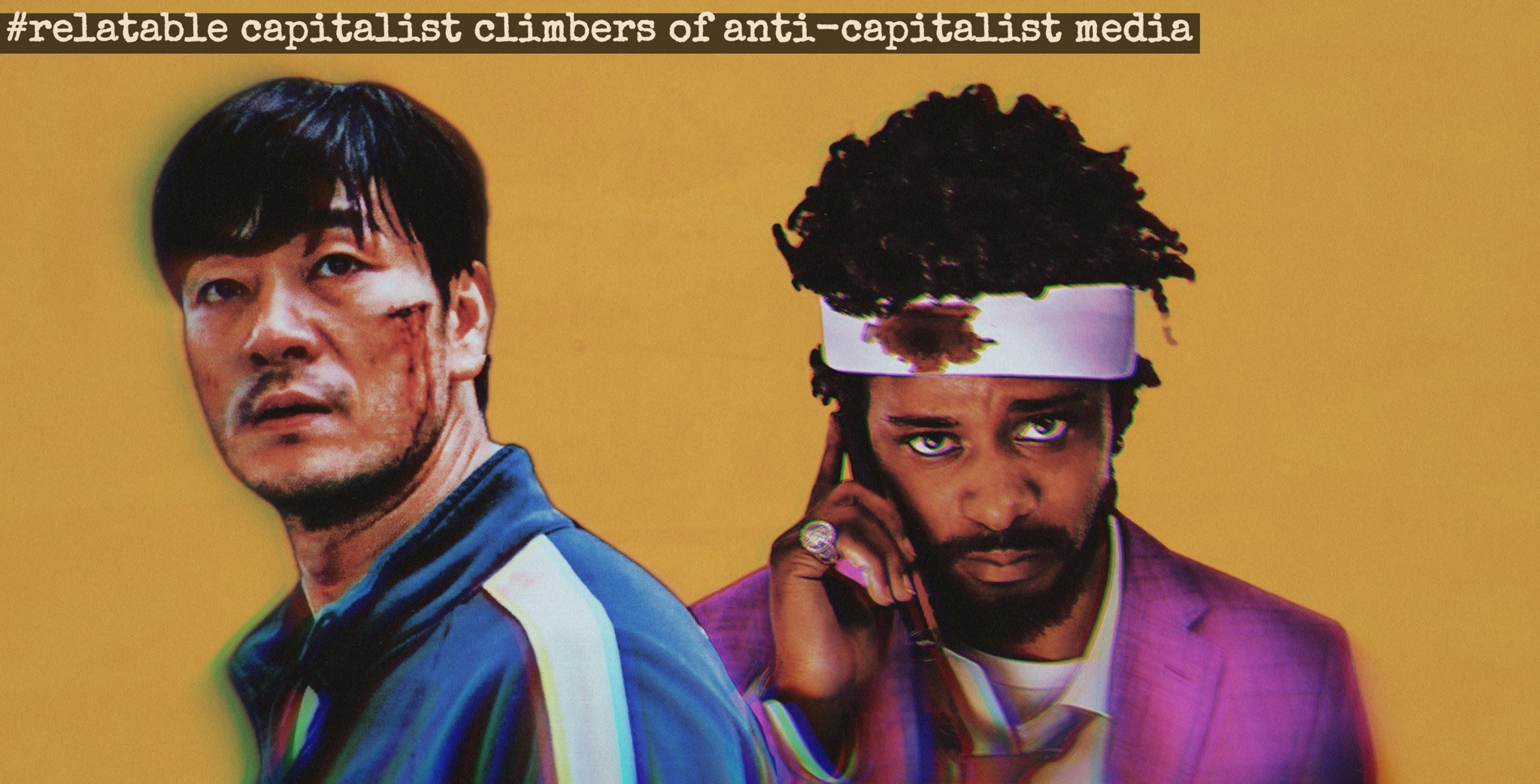
Sang-woo's motivations are likewise tied up in his ego. His academic success set high expectations, and he felt he had to live up to them. And he believed in the meritocracy, seeing himself as a rightful member of the bourgeoise (somehow who would, say, benevolently gift bus fare to a plebe) even after his debts became too high and the lie came unraveled.
📌 And what's this, the pin I put by "toxic masculinity"?
"Toxic masculinity" is not an individual condemnation. If society ties up the value of men in their success as earners and provider AND the system for obtaining wealth favors competitive traits like selfishness and ruthlessness toxicity is the conclusion by design. And these narratives understand that. So that even Sang-woo in the role of antagonist is afforded some level of sympathy. He bought into the system, he perpetrated the system, but he was a victim as well.
And what is the alternative to said toxic path? In both stories, Sang-woo and Cash are positioned opposite characters representing a kinder, more altruistic way through class solidarity and union organization-- Gi-hun and Squeeze respectively.
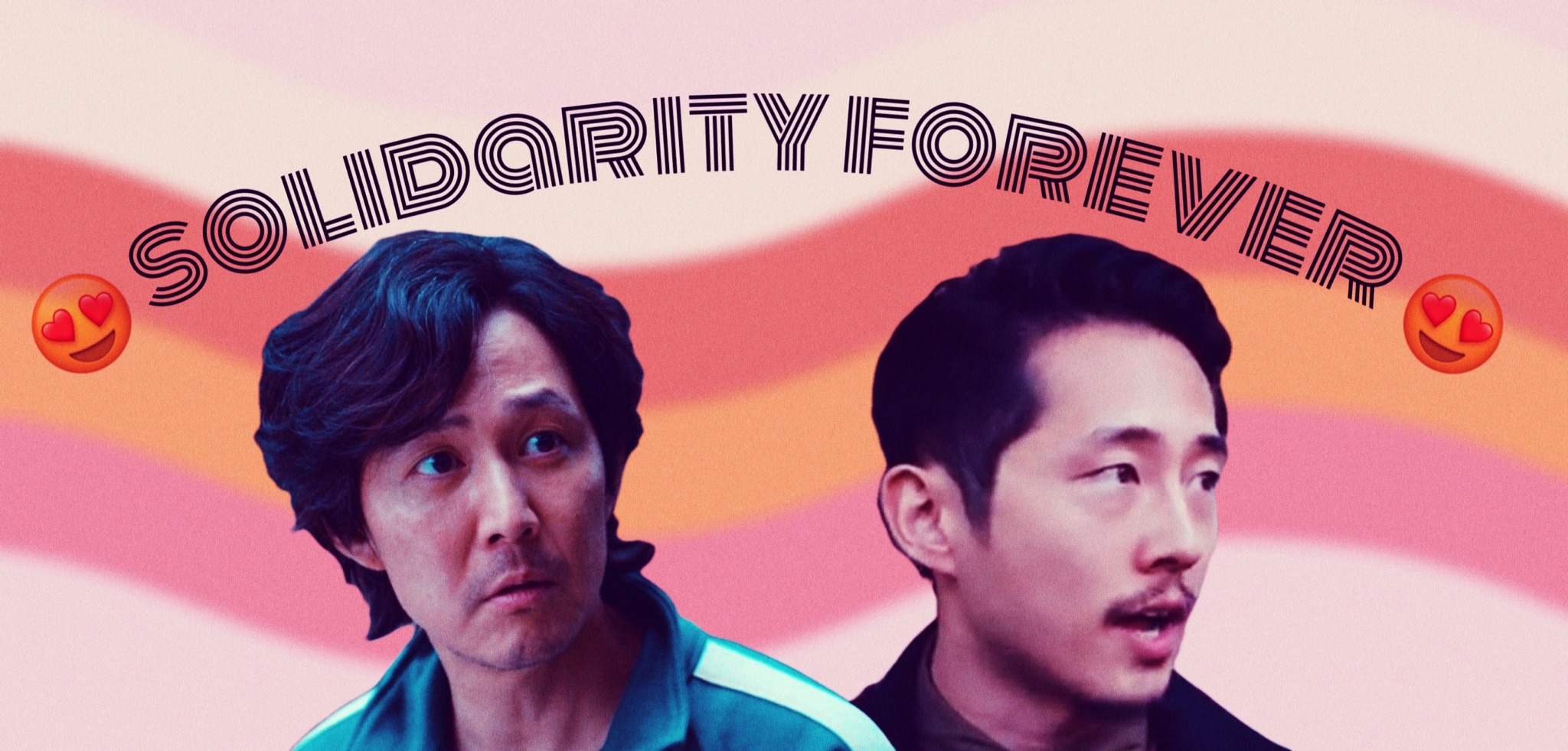
Gi-hun as Sang-woo's Achilles Heel *cronch*
Someone on Reddit made a joke about the symbolism of Gi-hun biting Sang-woo’s ankle in the last squid game and…YES, ACTUALLY?

Gi-hun basically is Sang-woo’s weak-spot in the games. Sang-woo was there to win it all, and having a friend in the mix was already a potential obstacle. Beyond that, it’s not hard to imagine that Sang-woo might admire (and even envy) Gi-hun’s kind heart and altruistic tendencies, the same way Gi-hun admires Sang-woo’s ambition and success. Maybe having Gi-hun around even made Sang-woo want to be a less selfish person…and death games were NOT the venue for that ☂️
And in the end, it was Gi-hun’s accusations and changed attitude towards of Sang-woo that hit harder than his bites and punches. It starts after the glass bridge, with Gi-hun asking “would you have pushed if it were me?” and looking at Sang-woo like he’s truly a monster…
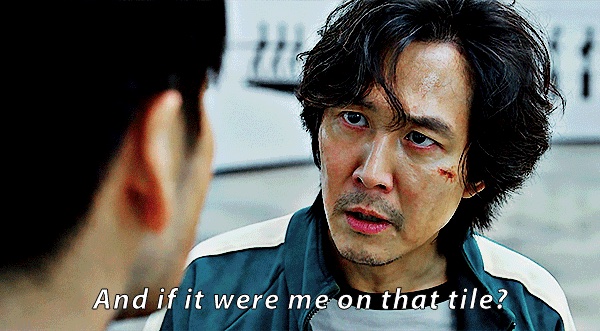
…and concludes when Gi-hun gains the upper hand in the last fight (post ankle-bite), yelling “You killed them, you killed everyone!” It’s at that point when Sang-woo most obviously gives up.
With Gi-hun’s back turned, Sang-woo (being the less injured of the two) could have snaked his way to victory—and probably would have, were his opponent anyone else. But he was facing his friend, ✨the metaphorical holder of the last piece of his humanity✨. And it turns out that still meant something. As Sang-woo couldn’t bear to leave without the prize money, he might have seen self-sacrifice as his last noble option. Or at the very least…it was the less selfish one.